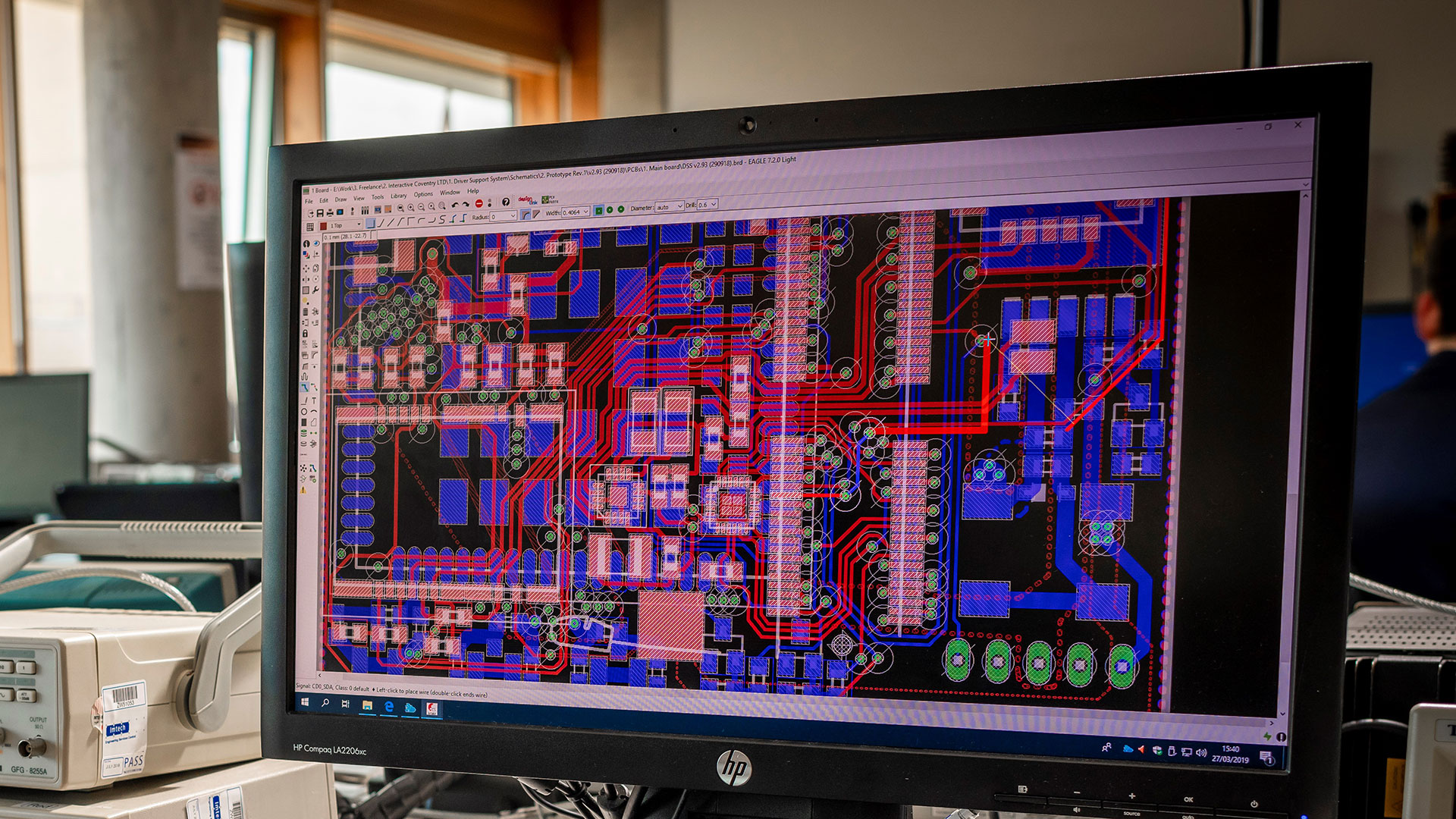Search
Electrical and Electronic Engineering BEng (Hons)

Course features
Location
PSB Academy
Duration
3 years full-time
Course code
PSBU02EC
Start date
Course information for PSB students only, please contact PSB for full details
Course overview
This course delivers strong academic content conveyed with a factual focus, with the aim of preparing you to take on the challenges present in the many fields of engineering and science which employ electrical and electronic engineering graduates.
Electrical and electronic engineers (EEE) design, develop and implement a multiplicity of systems associated with electrical and electronic engineering. On the electrical side, they could be involved in the generation, transmission and control of electrical energy or machine design and the implementation power drive systems which links to power electronic engineering.
EEE engineers are hugely involved in the expanding world of electrical vehicle design and make enormous contributions in terms of technological innovation and advancement in a range of other specialised fields; for example, aerospace systems, civil engineering in projects such as high-speed train design and development.
The course curriculum covers the essential principles of electrical and electronic engineering. It aims to develop the advanced skills needed by today’s graduates to develop high quality solutions in electrical and electronic engineering. Successful completion of this course provides a solid foundation from which to commence a career in electrical and electronic engineering.
What you'll study
We regularly review our course content, to make it relevant and current for the benefit of our students. For these reasons, course modules may be updated.
How you'll learn
Actual teaching contact hours will vary depending on the level of study and the requirements of a particular semester. In a typical week your time will be divided amongst personal tutorial and small group teaching; medium group teaching (for example seminars, tutorial sessions, lab sessions and workshops); and large group teaching (lectures).
In addition, you will be expected to undertake significant self-directed study each week, depending on the demands of individual modules. The number of contact hours may vary from semester to semester, however, on average, it is likely to be around 18 contact hours per week in the first and second years, dropping to around 16 contact hours per week in the final year as you become a more independent learner.
Assessment
Course curricular will be assessed using a variety of methods depending upon the nature of each module. Assessment methods include formal examinations, coursework, tests, portfolio, practical or project work, group work, demonstrations, presentations, and posters.
The Coventry University Group assessment strategy ensures that our courses are fairly assessed and allows us to monitor student progression towards the achieving the intended learning outcomes.
Job ready
On successful completion, you will have comprehension of:
- Scientific principles and methodologies relevant to electrical & electronic engineering.
- Mathematical and quantitative methods used in engineering analysis and design.
- Engineering project management including ethics, finance, risk, health and safety, and similar issues.
- The wider multidisciplinary context of engineering, incorporating social, economic, and environmental issues.
On successful completion, you will have expertise in:
- Solving technical and management problems involving uncertainty.
- Design of innovative products and systems employing recognised methodologies.
- Planning and executing research-oriented project work.
- Selecting and apply appropriate components, materials, and manufacturing processes.
- Planning and executing practical work involving experimentation, data collection, prototype construction, testing and specialised instrumentation.
- Use of specialised software tools and information technology equipment.
- Accessing and evaluating information sources including technical literature, standards, and codes of practice.
Entry requirements
Fees and funding
| Student | Full-time | Part-time |
|---|---|---|
| International | Contact PSB for fees per year | Not available |
Careers and opportunities
The technical content of this course is regularly reviewed to reflect what is currently important and in-demand in the electrical and electronic engineering industry. We also aim to ensure that the capabilities and skills that the sector regularly asks for are well addressed.
Successful electrical and electronic engineers should be highly trained professionals, and there is likely to continue to be a demand for electrical and electronic engineers with the ability to specify and design electronic engineering solutions for future challenges, such as electric transportation, renewable energy generation, robot systems and medical diagnostics.
Your career options could range from electrical or electronic design through to electronic manufacturing and integrating, providing and maintaining system solutions for a multitude of different industries.
Where our graduates work
Previous graduates from this course have gone into industrial roles in a diverse range of industries, for example defence, the motor industry, electrical and electronics, security and mobile development to name a few. Some have also chosen to progress to further study towards an MSc or PhD.




